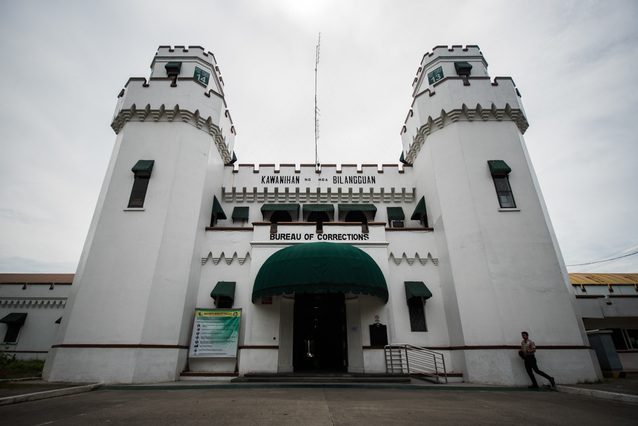SUMMARY
This is AI generated summarization, which may have errors. For context, always refer to the full article.

MANILA, Philippines – The Department of Justice (DOJ) has relaxed the rules for parole and executive clemency as the coronavirus outbreak threatened Philippine jails, but the new guidelines exclude heinous crime, high-risk, and drug convicts.
“The resolution excludes from its coverage Persons Deprived of Liberty (PDLs) convicted of heinous crimes or in cases involving illegal drugs, or those classified as high risk by the Bureau of Corrections,” said Justice Undersecretary Markk Perete.
The DOJ is relying on the now-repealed death penalty law, or Republic Act No. 7659, for the definition of heinous crimes, which include among others, certain cases of rape, murder, robbery, bribery, and plunder.
The resolution, signed by Justice Secretary Menardo Guevarra on April 15, does not define high-risk convicts.
Except for the removal of some of the previous requirements, the general rules for eligibility for parole will still apply.
“The resolution dispenses with most of the documentary requirements for applications for parole and executive clemency, except for the Court Certifications of No Pending Case and No Pending Appeal and a check on the records of the Person Deprived of Liberty (PDL) at the National Bureau of Investigation,” said Perete.
Those who are eligible for parole are the following:
- Inmate serving an indeterminate sentence the maximum period of which exceeds one year
- Inmate who has served the minimum period of the indeterminate sentence
- Inmate whose conviction is final and executory
- Inmate with no pending case
- Inmate serving sentence in the national penitentiary, unless the confinement of said inmate in a municipal, city, district or provincial jail is justified
Those disqualified for parole include convicts sentenced to life imprisonment, habitual delinquents, and those convicted of treason, rebellion, sedition, etc.
LOOK: The interim rules for the relaxed rules on parole and clemency – which exclude heinous crime, high risk and drug convicts – shall lose effectivity when the state of national emergency is lifted or if revoked sooner. pic.twitter.com/Es3JER4tyx
Executive clemency
“Those who are not eligible for parole may apply for clemency if they meet the criteria set under the resolution,” said Perete.
While the grant of clemency is upon the discretion of the President, there are some “extraordinary circumstances” laid out in the law. For example, it could be applied to a 70-year-old inmate whose continued detention will harm his health.
The new DOJ rules lowered the age from 70 to 65 years old.
“Note also that the part of the resolution allowing applications by those 65 years old and above with the conditions stated is new,” said Perete.
Perete said the Board of Parole and Pardons is now required to “double the number of case load for review and deliberation during its meetings to expedite the processing of applications.”
The requirement to report to their probation officer is removed while there is a state of national emergency.
The rules are in effect until the state of national emergency is in place.
As of writing, 9 inmates from the Quezon City Jail and 19 inmates from the Correctional Institute for Women in Mandaluyong have tested positive for coronavirus.
Groups have continued to call for a broader release of inmates on humanitarian grounds. – Rappler.com
Add a comment
How does this make you feel?
There are no comments yet. Add your comment to start the conversation.